Menu of Internationalization Activities
This list provides a comprehensive overview of initiatives and programs designed to advance global engagement in higher education. Organized into sections covering Internationalization at Home, Academic, Capacity Building, Institutional Services, Mobility, and Research, it offers detailed definitions, benefits, impacts, and regional contexts for each activity. This resource serves as a guide for educators, administrators, and policymakers seeking to understand and implement internationalization strategies in academic institutions worldwide.
Internationalization at home
AI-Driven Assessment of Intercultural Competence
Definition: AI-powered systems using scenario-based models and sentiment analysis to measure and provide insights into students’ intercultural competence, offering personalized feedback.
Benefits: Enhances self-awareness, improves intercultural skills, and supports tailored learning.
Impacts: Advances educational technology adoption, promotes global competence, and strengthens institutional innovation.
Country Related: Global / Ubiquitous
Awareness Campaigns for Sustainable Mobility
Definition: Workshops and initiatives promoting sustainable travel practices to reduce environmental impact.
Benefits: Raises awareness, promotes sustainability, and encourages responsible behavior.
Impacts: Supports environmental goals, strengthens global education practices, and enhances institutional responsibility.
Country Related: Widespread International Practice
Community Partnerships for SDG Integration
Definition: Collaborations with communities on projects aligned with UN Sustainable Development Goals, fostering societal impact.
Benefits: Promotes sustainability, enhances engagement, and drives social impact.
Impacts: Supports global priorities, strengthens community ties, and elevates institutional reputation.
Country Related: Widespread International Practice
Cross-Cultural Competence Certification Programs
Definition: Formal certifications in intercultural skills, such as those offered by Universität Heidelberg, to enhance global competencies.
Benefits: Improves employability, promotes intercultural collaboration, and supports skill development.
Impacts: Strengthens German education systems, supports global readiness, and boosts institutional credentials.
Country Related: International Practice (e.g., Germany)
Cultural Engagement and Community Building
Definition: Events celebrating diverse cultures to foster campus integration and community cohesion.
Benefits: Promotes inclusivity, enhances engagement, and fosters cultural pride.
Impacts: Strengthens campus diversity, supports internationalization, and enriches student experiences.
Country Related: Widespread International Practice
Diplomacy Lab Programs
Definition: University initiatives where faculty and students research foreign policy challenges identified by the U.S. Department of State, fostering practical global engagement.
Benefits: Develops policy analysis skills, enhances civic engagement, and provides real-world experience.
Impacts: Strengthens U.S. global influence, promotes academic-policy collaboration, and elevates institutional reputation.
Country Related: United States
Diaspora Academic Engagement Programs
Definition: Initiatives leveraging diaspora expertise for lectures, research, and mentorship, fostering collaboration without relocation.
Benefits: Promotes knowledge exchange, strengthens cultural ties, and enhances expertise.
Impacts: Strengthens diaspora academic networks, supports development, and boosts connectivity.
Country Related: Widespread International Practice
Education Hub Strategy (e.g., Dubai Knowledge Village)
Definition: National strategies to establish countries as education hubs, like Dubai’s Global Schoolhouse, attracting global talent.
Benefits: Attracts talent, fosters economic growth, and enhances competitiveness.
Impacts: Boosts UAE’s education sector, supports global education hub status, and elevates institutional partnerships.
Country Related: Dubai, UAE
Global Competence
Definition: Educational initiatives developing skills, attitudes, and behaviors (e.g., adaptability, critical thinking) for thriving in an interconnected world.
Benefits: Enhances employability, fosters resilience, and promotes intercultural understanding.
Impacts: Prepares students for global workforce, strengthens institutional reputation, and supports global connectivity.
Country Related: Widespread International Practice
Guest Lectures by International Scholars/Practitioners
Definition: Inviting international experts to deliver lectures, enriching course content with global perspectives and expertise.
Benefits: Enhances academic quality, promotes global insights, and fosters networking.
Impacts: Strengthens global engagement, elevates institutional reputation, and diversifies curricula.
Country Related: Widespread International Practice
Immigration and Visa Assistance
Definition: Support for navigating visa and immigration regulations for students and scholars, enhancing mobility.
Benefits: Reduces barriers, fosters inclusion, and enhances support.
Impacts: Strengthens global mobility, supports enrollment, and elevates institutional care.
Country Related: Widespread International Practice
Inclusive Campus Environment
Definition: Strategies ensuring a welcoming, equitable environment for international students to foster inclusion.
Benefits: Enhances diversity, promotes engagement, and fosters community.
Impacts: Strengthens campus culture, supports internationalization, and elevates student experiences.
Country Related: Widespread International Practice
Intercultural Communication Workshops
Definition: Training for staff and faculty to navigate cross-cultural interactions, enhancing effectiveness.
Benefits: Improves communication, fosters collaboration, and promotes inclusion.
Impacts: Strengthens global competencies, supports diversity, and elevates institutional engagement.
Country Related: Widespread International Practice
Intercultural Competency Programs
Definition: Workshops or courses developing cultural awareness, empathy, and cross-cultural communication skills for diverse environments.
Benefits: Enhances interpersonal skills, promotes inclusivity, and supports collaboration.
Impacts: Strengthens campus diversity, fosters global readiness, and aligns with internationalization goals.
Country Related: Widespread International Practice
Intercultural Simulation Exercises
Definition: Classroom activities simulating cross-cultural scenarios to develop students’ ability to navigate cultural differences effectively.
Benefits: Enhances problem-solving, promotes cultural empathy, and fosters adaptability.
Impacts: Strengthens global competence, supports inclusive education, and aligns with internationalization goals.
Country Related: Widespread International Practice
Leveraging National ‘Cultural Wave’ Phenomena
Definition: Integrating elements of a nation’s popular culture boom (e.g., South Korea’s Hallyu/K-Wave) into recruitment, campus life, and academic programs to attract international students.
Benefits: Enhances appeal, promotes cultural pride, and fosters global engagement.
Impacts: Strengthens soft power, boosts recruitment, and supports South Korea’s global influence.
Country Related: South Korea
Staff Mobility
Definition: Opportunities for administrative staff to work or train internationally, improving global competencies.
Benefits: Enhances operational skills, fosters cultural exchange, and promotes collaboration.
Impacts: Strengthens institutional capacity, supports global standards, and fosters mobility.
Country Related: Widespread International Practice
State-Sponsored Language and Culture Centers (e.g., Confucius Institutes)
Definition: China-funded centers promoting language and culture at partner institutions, enhancing soft power.
Benefits: Promotes cultural exchange, fosters partnerships, and enhances language skills.
Impacts: Strengthens China’s global influence, supports cultural diplomacy, and boosts education ties.
Country Related: China
Student Presentations to International Audiences
Definition: Assignments where students present to international or cross-cultural audiences to enhance global communication skills.
Benefits: Improves public speaking, fosters cultural adaptability, and boosts confidence.
Impacts: Strengthens global competence, supports internationalization, and prepares students for global careers.
Country Related: Widespread International Practice
Support for Scholars at Risk Programs
Definition: Initiatives providing refuge for persecuted academics to continue their work, supporting academic freedom.
Benefits: Promotes human rights, fosters inclusion, and enhances safety.
Impacts: Supports global academic freedom, strengthens institutional values, and elevates impact.
Country Related: Widespread International Practice
University Cooperation for Development
Definition: Partnerships supporting global societal well-being through education and research collaboration.
Benefits: Enhances social impact, fosters collaboration, and promotes sustainability.
Impacts: Supports global development goals, strengthens partnerships, and elevates institutional impact.
Country Related: Widespread International Practice
University Social Commitment through ‘Extensión’ Programs
Definition: University missions engaging in reciprocal community dialogue and social transformation projects focused on human rights, cultural preservation, and equity, as seen in Latin America.
Benefits: Enhances societal impact, fosters civic engagement, and promotes equity.
Impacts: Strengthens community ties, supports regional development, and elevates institutional reputation.
Country Related: Latin America (Argentina, Uruguay)
Welcoming Refugees
Definition: Programs integrating refugees into university communities, recognizing their skills and fostering inclusion.
Benefits: Promotes equity, fosters inclusion, and enhances diversity.
Impacts: Strengthens global social responsibility, supports refugee integration, and elevates institutional values.
Country Related: Widespread International Practice

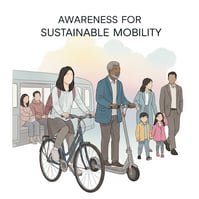
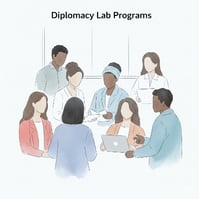

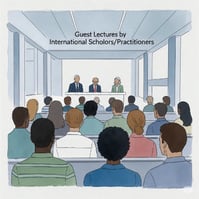
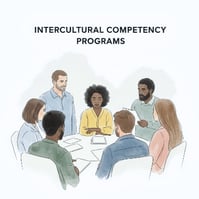
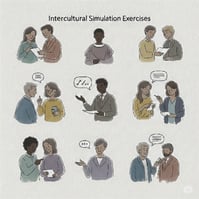


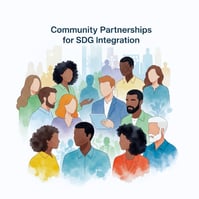
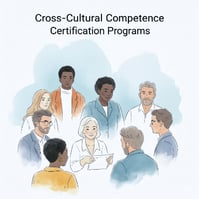

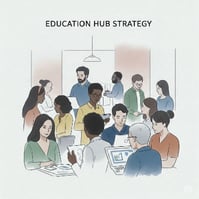
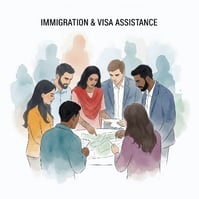









Frameworks
Frameworks allow administrators to explore international initiatives from operational and strategic perspectives.
